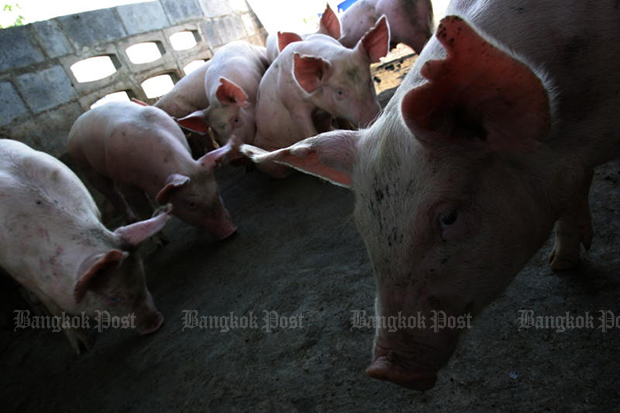
Animal health authorities in Southeast Asia have beefed up border surveillance for African swine fever after a third outbreak of the deadly pig virus was reported in China’s southwestern Yunnan province.
The fast-spreading virus was found in a “backyard” operation last week in Guanfang village, within about 200 kilometres of China’s border with Myanmar and Laos and near Thailand. Some countries have taken measures at the border to control the introduction of people, animals, and products from China, said Laure Weber-Vintzel, the Bangkok-based deputy regional representative for the World Organisation for Animal Health.
“The virus is spreading extremely quickly in China, highlighting the challenge controlling the transportation of pigs and pork products,” Ms Weber-Vintzel said on Wednesday in a telephone interview. “Infected pork products play an important role in disease-spread and should not be underestimated.”
The outbreaks in Yunnan “probably represent an increased risk” because of their proximity to the border, and add to the threat of international spread already posed by the movement of humans who carry the virus in contaminated pork products “which can be transported over long distances,” she said.
For Surachai Sutthitham, president of the Thai Swine Raisers Association, the latest outbreak poses the biggest threat yet to the country’s 108 billion baht hog industry.
“This is the most worried I’ve ever been in my 17 years as president,” Mr Surachai said. “The government should prepare for the possible outbreak and do whatever it takes to avoid the problem in Thailand.”
Thailand's livestock officials stationed at borders and airports have been put on high alert against pig smuggling since September amid growing concern over the flu epidemic in China.
Thailand had 13.5 million pigs in commercial farms, about 25% of them in Ratchaburi and Nakhon Pathom provinces, in 2015, according to the latest figures from the Agricultural Economics Office.
Fourteen Chinese provinces have reported infected pigs since the disease began spreading there in August. Chinese veterinary officials have attempted to control the movement of livestock, increased disease surveillance, screened animals, quarantined affected farms and tried to trace the source of infection, according to a Nov 1 report prepared by Zhang Zhongqiu, the director general of the China Animal Disease Control Centre, for the Paris-based World Organisation for Animal Health, also known as the OIE.